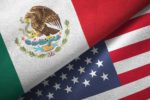
In today’s global supply chains, there’s a need to speed up the importation and delivery of mission-critical equipment and time-sensitive spare parts. But the process can be especially challenging in the Middle East and Africa (MEA), where companies must navigate a complex regulatory environment, cultural differences and diverse business practices
The MEA region is composed of diverse countries, each with its own unique set of regulations and requirements for importing and exporting goods. In order to bring medical, cybersecurity, mobility or other technology products into the United Arab Emirates, Saudi Arabia or Egypt, for example, manufacturers must comply with a host of authorities and regulatory regimes. Failure to properly register products or comply with local regulations can result in delayed delivery, fines, confiscation or rejection of shipments, and the ultimate consequence of a brand ban.
The first step, then, is to clearly understand each country's specific regulations. This includes knowing the required permits and certifications, import/export restrictions and other documentation for a smooth import and delivery process.
The fastest way to save time in studying each country's regulations is to find a local importer of record (IOR) and regulatory affairs caretaker with extensive knowledge of specific requirements in the MEA. An independent IOR will ensure that all necessary permits and approvals are obtained in a timely manner, and that the import process is handled faster. And a competent regulatory affairs caretaker has already developed a strong regulatory framework and standardized processes that can be readily implemented.
Dubai as a Distribution Hub
Instead of importing products directly from various countries in the MEA, manufacturers should consider using Dubai as their regional distribution hub. Dubai is strategically located at the crossroads of Europe, Asia and Africa. It has become a center for international trade, with a well-established logistics infrastructure that includes air, sea and land transportation. Companies can take advantage of the numerous shipping routes and flights that pass through Dubai to transport equipment and spare parts to their final destination in the MEA region.
Dubai is also an ideal location for faster re-export to other MEA countries. Because the UAE has signed numerous trade agreements with other countries in the region, including Saudi Arabia, Oman and Bahrain, companies can import equipment and spare parts to Dubai, store them in a customs-bonded facility or free trade zone, then re-export them to other MEA countries without paying any local duties or taxes in Dubai. In the process, they can avoid the region’s complex customs procedures and regulations that can slow down the process.
Using Bonded Warehouses
Another challenge that supply chain managers face when importing critical equipment is the cost associated with customs duties and taxes. These fees can be significant, making it essential to find ways to reduce costs while ensuring regulatory compliance. Many traders are familiar with free trade zones, which can optimize the import process. But a customs-bonded warehouse is an even better solution for faster import and regulatory approvals, with the option of deferring payment of customs duties and taxes.
Countries like the UAE, Jordan, Morocco and Egypt allow trusted IORs to store high-value goods in customs-bonded warehouses, enabling manufacturers to keep products closer to customers and respond more quickly to market demand. This can shorten the import process from months to days, and minimize the risk of customs delays or complications.
A customs-bonded warehouse allows deferred payment of duties and taxes until the products are ready to be sold or released to the mainland or re-exported to other countries. This significantly reduces cash flow requirements, mainly for the import of high-value goods.
Anastasiia Pohyba is growth marketing manager at Pedigri Technologies.







